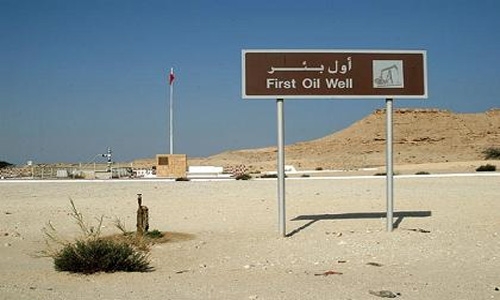Bahrain's exodus from oil
Manama : Bahrain has been taking steps to mitigate its reliance on oil since the beginning of its National Reform program in 2006.
In order to move away from oil, the kingdom has worked to encourage its other growth factors, which it identifies as its young and dynamic population, its central location in the GCC, and its well-developed infrastructure. The central focus has been on educating the population through a government funded reform initiative named Tamkeen that was set up in August 2006.
Tamkeen promotes two fundamental objectives: fostering the creation and development of entrepreneurial ventures, and providing support to enhance and expand those ventures as well as individuals within them. In order to capitalise on Bahrain’s central location and infrastructure, the programme encourages entrepreneurship and individual training through training, consulting, financing, and enterprise support.
Tamkeen
A key component in this effort has been a partnership between Tamkeen and the Bahrain Institute of Banking & Finance (BIBF) which provides Bahrainis with financial training at heavily discounted or free rates. Solveig Nicklos, Director at the BIBF, reported that since the beginning of the partnership Bahrain has seen a "huge upswing in professional qualifications" as Bahrainis join the subsidised courses.
According to Nicklos, interest in financial services has been growing particularly quickly in uptake alongside both compliance and corporate governance courses and AML compliance and risk programmes.
In particular, she said that "Islamic finance is growing most quickly among the financial services courses," an area which matches well with Bahrain’s history as a pioneering provider of Islamic finance opportunities. The country was the first to offer a dollar denominated sukuk, or Islamic bond.
However, while Bahrain may see some success upskilling its workforce to encourage investment and growth from GCC and beyond, its prime goal of encouraging entrepreneurial enterprises is where Tamkeen and Bahrain’s efforts shine.
According to the organisation, it provides more than $132m a year to entrepreneurs simply for office space and facilities purposes. It offers subsidies, equipment grants, consultancy services, and free exhibition participation through its Jawda program, and has served more than 29000 SMEs since 2007 through its various finance support schemes, incubators, and enterprise support programmes.
This entrepreneurial drive is vital to Bahrain’s long term economic outlook, and is intended to provide a fertile environment for entrepreneurs and startups. Financial services are already a large part of the Bahraini economy at 16.4% of the country’s real GDP, second only to the oil sector, according to Bahrain’s most recent economic report.
Rather than trade one GDP dependency for another by swapping oil for the financial services sector, the state has taken positive steps to encourage startup growth in the ICT, manufacturing, and tourism sectors.
Related Posts

